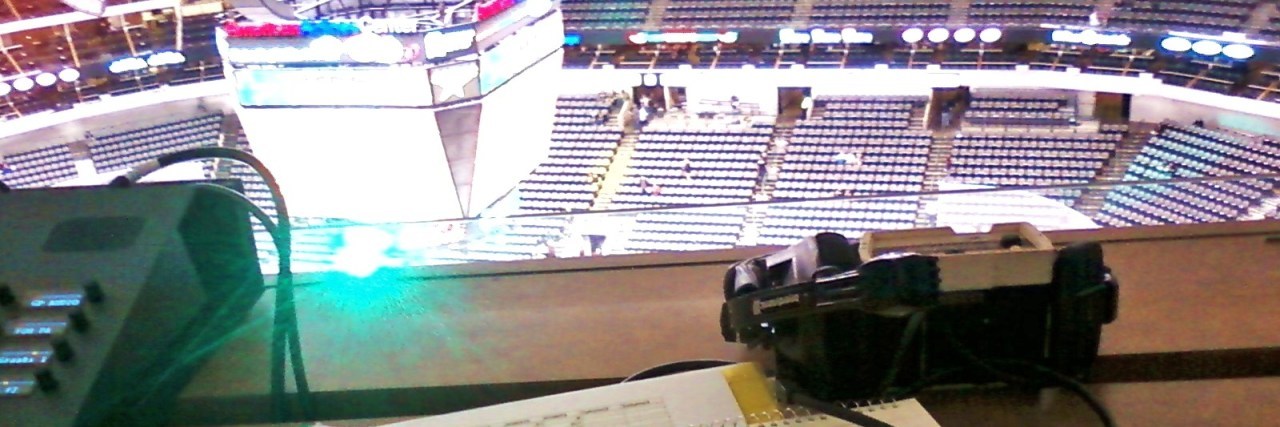If the only thing you know about professional sports is that it is a “guy thing,” you know a lot already. In America, pro sports are dominated by men — both the athletes and the people behind the scenes. The mentality is one of “toughness and teamwork.” And unfortunately, the major pro sports in the US — NFL football, NBA basketball, MLB baseball and NHL hockey — all have these antiquated stereotypes attached to them. A “man’s world,” full of beer and half-naked women. I’m not going to pretend like those things don’t exist, and certainly, some sports have come a lot farther than others. But as I enter my sixth season with the NHL, I can tell you that — at least in hockey — things are changing. Not just with regards to gender, but health and wellness too.
Out of the first 30 or so people I met when I got hired, about three were women — not counting cheerleaders. It’s true that pro sports are still male-dominated, but women do exist behind the scenes, and over the last five years I have seen more and more young women working as interns and eventually staff members for our team. The mindset that women “don’t belong” there has changed, and the men I work with are unconcerned with your gender, as long as you have a quality work ethic and a good personality.
But what happens when you are a woman with depression or anxiety? What happens when you have a chronic illness that saps your strength and energy? How do you integrate successfully into a fast-paced world where “suck it up” is the motto, and giving “110 percent” is the minimum?
As it turns out, my fears of being branded with a negative stereotype were unfounded. In fact, the men (and women) I work with are some of the most caring, compassionate, kind souls I’ve ever known. We are a family, no matter what. Engagements, weddings, divorces, new babies, empty nests, financial crises, medical crises, mental health crises — I’ve seen it all (and been through several myself). Everyone from the owner and general manager, down to the Zamboni drivers, are part of the “hockey family.” I’ve seen the team and the town rally around players, staff members, reporters and broadcasters after devastating medical diagnoses. When I finally came out online about my own mental illness, the response was overwhelmingly positive. But what would happen when I went back to work, and had to see people, in real life?
There were lots of hugs and high fives — plenty of “I love you” and “I missed you.” But mostly, “I’m so glad we’re all finally back!” — the exact statement we all squeal every year on our first day back to work as the new season begins. In short, very little changed, and that was the best response I could have asked for. A few people came up and thanked me for being open, and shared their own stories. That was touching, and reminded me why I decided to be open and honest about it. I’m sure there are some people who think differently of me now — actually, I know there are. But they keep it to themselves, because they are dramatically outnumbered by the supportive, loving people who are still standing by my side. Even in the world of professional sports — one of the last places I would expect to feel comfortable as a woman with a mental illness — I have found the people to be nothing short of amazing.
It’s easy to think it’s a fluke, or I am an exception to the rule. That’s not the case though. Pro sports is a changing world. After two NHL players died by suicide in just a few months in 2011, the entire league began talking openly about mental health, and the importance of letting everyone know it is OK to ask for help. “Hockey Talks” is an initiative started by the Canadian teams in the NHL to raise awareness for mental health. Several organizations such as “Hockey Fights Cancer,” “Pevs Protects” and “Hockey is for Everyone” cover topics from cancer, to heart health, to LGBTQ issues. Individual teams have their own special awareness campaigns for everything from multiple sclerosis (MS) to juvenile diabetes — often started by players themselves. The league — for all its pro sports flaws — genuinely tries to be supportive and give back to the communities. Within the organizations, there is camaraderie you would be hard pressed to find anywhere else.
I don’t expect every company, every team or every person in the world to be as accepting as the ones I am fortunate enough to work with. But as a woman in a male-dominated and highly competitive field, I am valued for my work ethic and for being a good friend to those I work with. If my “team” can accept me for who I am — mental illness and all — then it gives me hope that society as a whole is moving in a direction of open, honest acceptance for everyone. And I know that by taking that leap of faith and being transparent about my struggles, I’ve not only proven to myself that I am never alone, but I’ve managed to give hope to others that they aren’t either.
We want to hear your story. Become a Mighty contributor here.
Image via contributor

